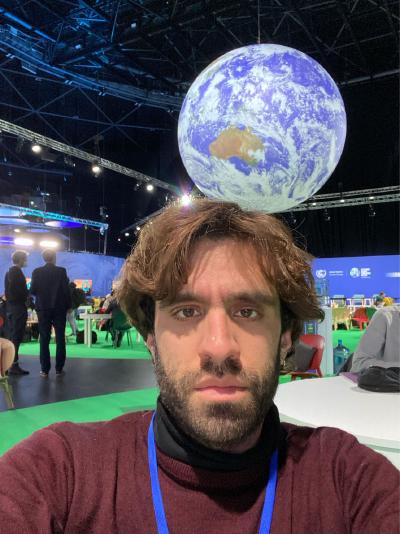In the same section
-
Share this page
A researcher at COP26
Back from COP26, ATM researcher Panagiotis Varelas reflects on his experience in European politics and his area of expertise: the energy transition.

"For me, it was important to participate in COP26. It was a unique opportunity to fight climate change", says Panagiotis Varelas, on his return from Glasgow. It was not the first political event for the ATM researcher. The engineer, who graduated in computer science from the University of Thessaly, used to work in the European Parliament: "I moved to Belgium five years ago to start a six-month internship. I then took part in the Environmental Committee as a policy advisor. My role was to study different issues to advise parliamentarians and to amend draft texts. In particular, I followed the European Green Deal.
For Panagiotis, these negotiations were a turning point. "It was then that I realised that parliamentarians were not making decisions based on reliable data and I decided to go into research.” He joined ATM in September 2020 with the project to measure the economic and social impacts of energy policies. "In the context of energy modelling, I am particularly interested in consumer behaviour towards the energy transition and the main obstacles to the acceptance of renewable energies such as solar or wind power," explains the researcher.
This topic fitted perfectly with COP26. “It was my first COP. I had high expectations, while remaining realistic. If almost 200 countries managed to agree on one point, it was already a great success!” With the signing of the Glasgow Climate Pact, Panagiotis is optimistic: "A change is taking place. Even the most conservative are aware of the urgency of the situation and are ready to act. According to him, COP26 also showed that scientists are respected and listened to. "As a community, we have an impact. We can't fight climate change by staying in our bubble. If I had to send only one message: let’s get involved and participate in the debates!"